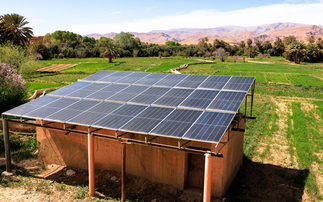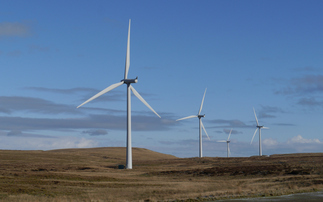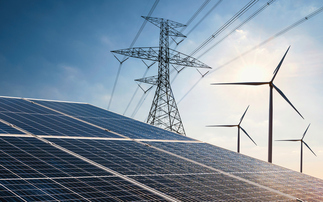But oil giant still expects global carbon emissions to rise 20 per cent by 2035, highlighting need for further climate policy action
BP has today offered its most upbeat assessment to date of the prospects for the clean energy sector, acknowledging that a low carbon transition is underway, while highlighting stellar growth rates for the renewable energy industries and predicting the rate of emissions growth over the next 20 years will halve compared to the previous 20 years.
However, any cause for celebration among environmentalists will prove short-lived as the oil giant also predicted global carbon emissions will rise by 20 per cent through to 2035, far exceeding emissions goals compatible with less than 2C of warming.
The predictions dominate BP's annual Energy Outlook, which today offers the company's latest assessment of energy trends through to 2035.
Speaking at the launch of the report, BP CEO Bob Dudley said it highlighted how the global energy industry was diversifying as more low carbon fuels came online. But he also warned that the international climate goals agreed in Paris late last year would not be achieved without bolder policy action.
"As this year's Outlook demonstrates, the world is going to continue to demand growing supplies of energy but the mix of those supplies is changing and becoming less carbon-intense," he said. "However, further policy action may be necessary to meet international targets to limit carbon emissions."
Mirroring a host of recent reports on the record levels of renewable energy investment seen in recent years, BP said renewables, including biofuels, are projected to grow at around 6.6 per cent a year, increasing their share of the energy mix from three per cent today to nine per cent by 2035. The projections mark an increase on last year's edition of the report, when BP expected renewables to take an eight per cent share of the global energy mix by 2035.
Consequently, BP expects renewables to account for a quarter of global primary energy growth out to 2035 and over a third of the growth in global power generation.
In contrast, the coal industry is predicted to continue its recent crisis, with BP projecting its share of the global energy mix will fall below 25 per cent in 2035 - its lowest level since the Industrial Revolution.
The report said the continued shift from coal to gas and renewables means the recent trend whereby emissions growth and economic growth have decoupled will continue over the next two decades.
"The growth rate of carbon emissions over the Outlook is expected to more than halve relative to the past 20 years: 0.9 per cent p.a. versus 2.1 per cent p.a.," the report states. "Given that GDP is projected to grow only slightly slower than the historical trend, this represents a significant degree of 'decoupling' of carbon emissions from GDP. This decoupling reflects significant increases in the expected pace of decline of both energy intensity (energy used per unit of GDP) and carbon intensity (carbon emissions per unit of energy consumption)."
The company also highlighted the impact of the Paris Agreement on its predictions. "The world is embarking on a transition to a lower-carbon energy system," the report states. "The pledges made by participating countries in their Intended Nationally Determined Contributions (INDCs) ahead of the COP21 meeting in Paris, and the level of agreement reached in Paris, have increased our confidence that the world will achieve this break from past trends."
However, the report also warns that even when the trends towards lower carbon intensity are taken into account global energy demand is still expected to rise 34 per cent between 2014 and 2035 and as a result carbon emissions are expected to rise by a fifth over the period.









